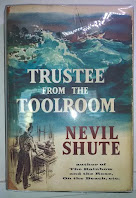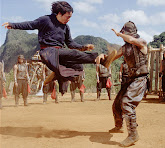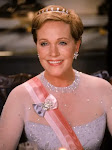I read part of The Masterpiece and then watched the movie Cezanne and Me about Cezanne and Zola.
Zola, author of The Masterpiece, was a member of a group of artists who straddle the emotionalism of Romanticism and the realism of Modernism. He was friends with Cezanne specifically from childhood and although tradition states that they fell out due to The Masterpiece, it is more likely that they fell out due to temperament. (The massive biography I am wading through by Matthew Josephson, published in 1929, makes this argument; I'm always fascinated when a myth continues despite someone arguing against it almost immediately).
The Masterpiece excellently captures the energy, opinions, physical exuberance, self-consciousness, ambition, and male comradery of those early friendships. I became less interested when the book became about the artist's "fall." The book ends with his suicide--hey, it's a classic; readers should know that--which made me sigh.
Many artists, by the way, claimed to be the main character, Claude Lantier, so apparently, they are liked the idea of being deeply scarred souls challenging The Establishment. (The painting that Lantier is working on at the beginning of the novel is basically Manet's Luncheon on the Grass.)
Whatever its plot, The Masterpiece is quite lovely to read, it is
so well-written. I'm always envious of writers who can easily convey
description without sounding like, well, A.I. (Tolkien has the same
ability.)

I intended, initially, to watch the movie to see how it portrayed Cezanne: Accurately? Non-accurately? Accurately according to Zola? Not accurately according to Zola?
However, I changed my mind when it became obvious that although the main character of The Masterpiece may be based partly on Cezanne, it is more likely based on a number of artists, including Manet, and, for that matter, Zola himself.
I then thought that I would watch the movie to connect the character of Sandoz to Zola, but that doesn't really work either. In fact, if the movie is accurate (and Josephson's biography seems to back up the movie), Zola's diffidence and his idealism of women were traits he gave Lantier, the artist, not Sandoz, the writer. Or maybe Zola put himself into every character, even Dubuche, the bourgeois who wants to marry well and live well and not starve in an attic, thank you very much.  The movie Cezanne and Moi impressively captures that possibility--that Zola was writing more about himself in The Masterpiece than about Cezanne. It also captures the rivalry between the men, the possibility that Zola, at least, realized that Cezanne might eventually become better known than Zola, which is true. Both are seminal figures in their respective fields; generally speaking, Cezanne is more common currency.
The movie Cezanne and Moi impressively captures that possibility--that Zola was writing more about himself in The Masterpiece than about Cezanne. It also captures the rivalry between the men, the possibility that Zola, at least, realized that Cezanne might eventually become better known than Zola, which is true. Both are seminal figures in their respective fields; generally speaking, Cezanne is more common currency.
The movie does a decent job capturing the world of artists and writers in that time. In terms of the ultimate question (for almost all these books-to-movies posts), Did the movie capture the personalities of real people?
Frankly, I didn't think it did. It tried, but unlike with J. Edgar, where I came away with a stronger sense of Hoover despite the movie's flaws, with Cezanne and I, I just came away thinking, "That was very French." A good film. But more about the themes than about the people.
In the next A-Z list, List 10, I will focus on this issue exclusively. How do books and films convey character well or badly?













.jpeg)
.jpg)


































